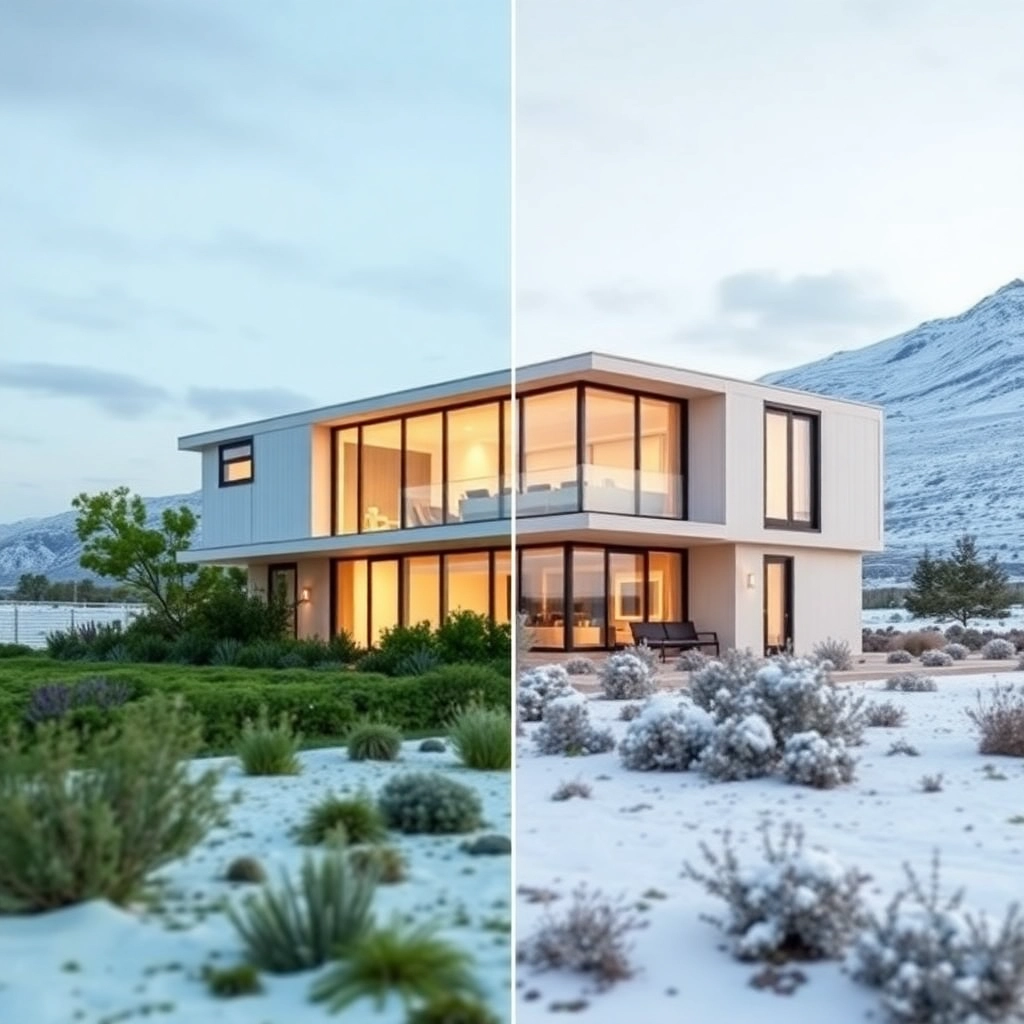The Ultimate Checklist for Buying a Prefabricated Home in Louisiana: Boxabl, Shipping Container Homes, and More
With the growing demand for affordable, sustainable, and adaptable housing options in Louisiana, prefabricated homes, including popular choices like Boxabl units and shipping container homes, are gaining traction. Whether you’re in a Hot humid summers with thunderstorms area or a Coastal hurricane-prone region, it’s essential to understand the requirements for a safe and compliant prefabricated home. This checklist will guide you through everything from planning and purchasing to setup, helping you prepare for your new home in Louisiana. 1. Determine Your Budget and Financing Options Establish a Budget: While prefabricated homes are typically more affordable than traditional housing, costs can vary based on factors like delivery distance, site preparation, and modifications for Louisiana’s specific building codes. Explore Financing: Depending on where you’re located, lenders may have different policies for prefabricated homes, especially in areas with Hot humid summers with thunderstorms considerations. Check with your lender to see if they support financing for your chosen prefabricated model. 2. Choose the Right Prefabricated Home for Louisiana’s Climate Boxabl Homes: Known for quick assembly and high-quality design, Boxabl homes are a solid choice for those seeking compact, resilient living spaces. Many Boxabl models are built to withstand Hot humid summers with thunderstorms, making them ideal for coastal regions in Louisiana. Shipping Container Homes: Shipping container homes are durable and versatile, often used in areas with Coastal hurricane-prone. These homes can be customized with enhanced insulation and weatherproofing to fit Louisiana’s climate. 3. Research Louisiana’s Building Codes and Zoning Regulations Permit Requirements: Different states have unique requirements for prefabricated structures. In Louisiana, check with local authorities about specific permits for Boxabl or container homes, and review zoning restrictions that may limit where prefabricated homes can be placed. Code Compliance: Prefabricated homes must meet Louisiana’s building codes, especially if you’re in an area prone to Coastal hurricane-prone. Make sure your selected home is rated for the local environmental conditions. 4. Prepare the Site and Plan for Utility Connections Site Preparation: Most prefabricated homes require a stable foundation. In Hot humid summers with thunderstorms areas, secure anchoring is often necessary to withstand strong winds, while regions with cold winters may need additional ground insulation. Utility Setup: In Louisiana, utility setups may vary based on climate. Coastal homes, for example, may need additional stormproofing measures, while homes in colder regions benefit from insulated water and electric lines. 5. Consider Insulation, Weatherproofing, and Energy Efficiency Insulation for Louisiana’s Climate: Prefabricated homes in Louisiana should be equipped with insulation suited to the local climate. If you live in a region with cold winters, closed-cell spray foam or rigid foam board insulation can improve energy efficiency. In Hot humid summers with thunderstorms areas, reflective coatings and ventilated design help manage temperature and prevent condensation. Weatherproofing Measures: Boxabl units and container homes may require additional weatherproofing based on Louisiana’s climate. Impact-resistant windows and sealed seams help protect against storm damage and extreme temperatures. 6. Plan for Delivery and Installation in Louisiana Delivery Logistics: Prefabricated homes often require transport by large vehicles. Rural or mountainous areas in Louisiana may need special delivery arrangements. Assembly Needs: While some homes arrive pre-assembled, others need on-site setup. Areas with Hot humid summers with thunderstorms, such as hurricane-prone regions, may require additional bracing or anchoring during installation to ensure stability. 7. Personalize Your Home to Suit Louisiana’s Lifestyle Customization: Boxabl and shipping container homes offer modularity that can be tailored to fit Louisiana’s lifestyle needs. Whether you need extra insulation for cold winters or larger windows for sunny regions, these homes are highly adaptable. Outdoor Enhancements: In Louisiana, adding features like a deck or storm shutters may enhance comfort and safety, particularly in areas with seasonal weather patterns. 8. Verify Insurance Options for Prefabricated Homes in Louisiana Insurance Needs: Prefabricated homes in Louisiana often require specialized insurance, especially in areas with storm risks or flood zones. Contact local providers to discuss coverage options that meet Louisiana’s requirements.








